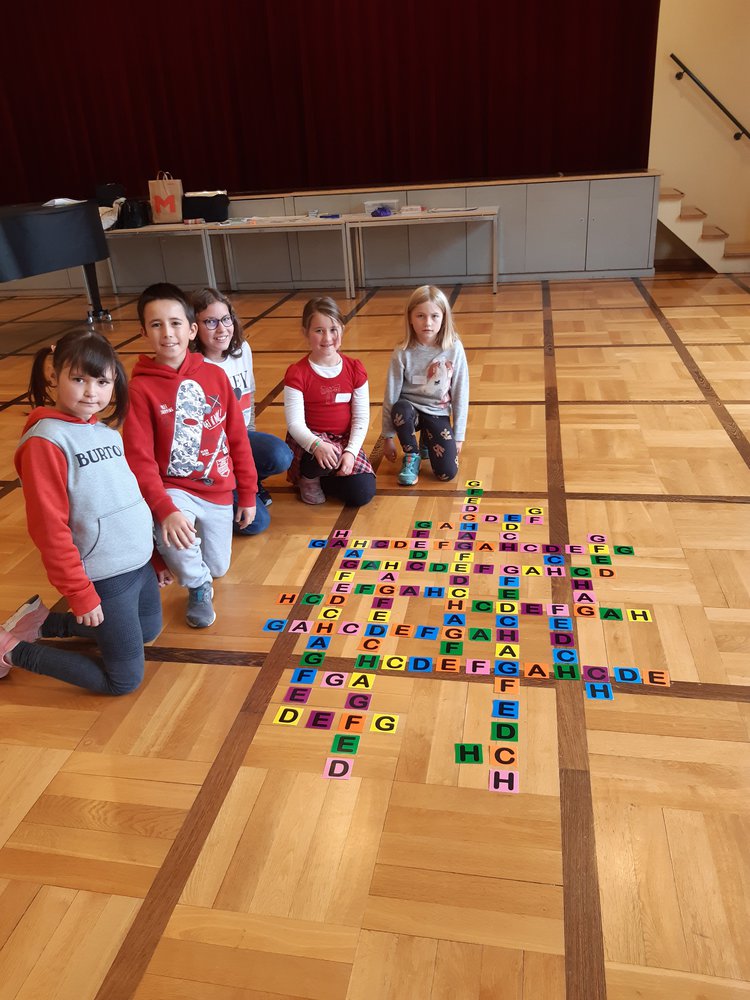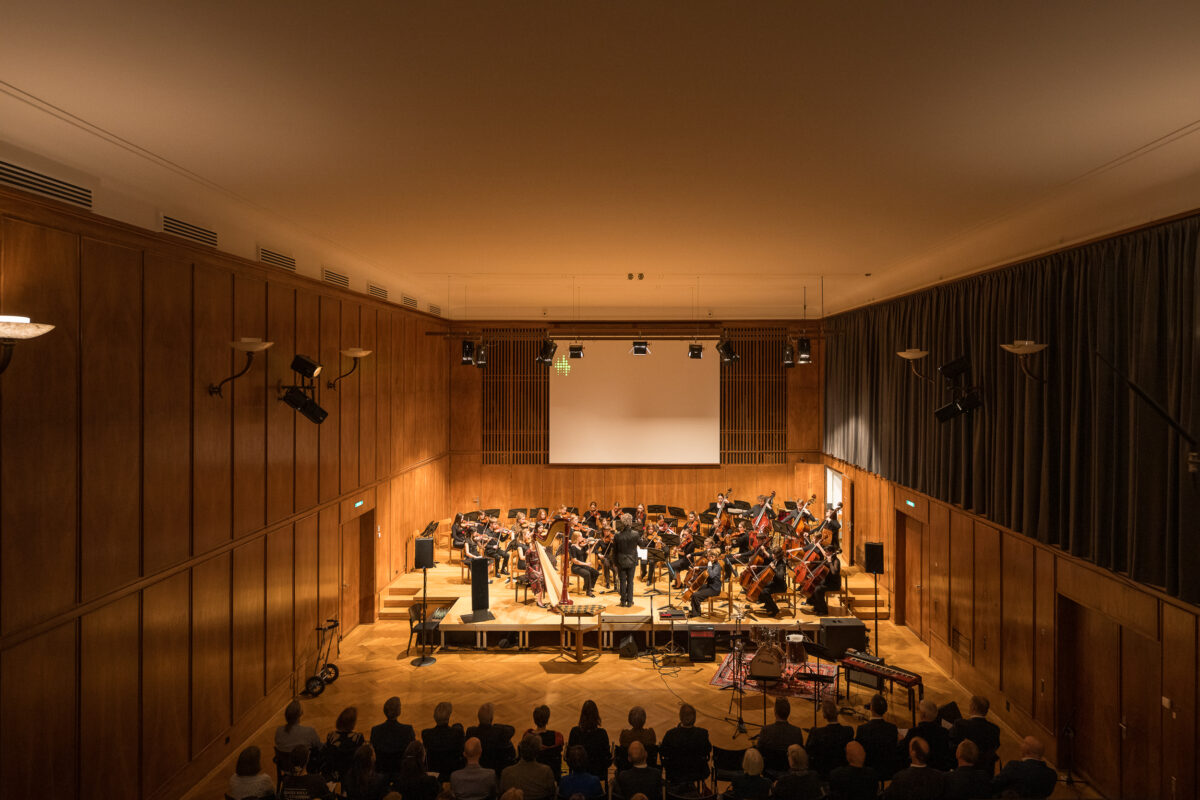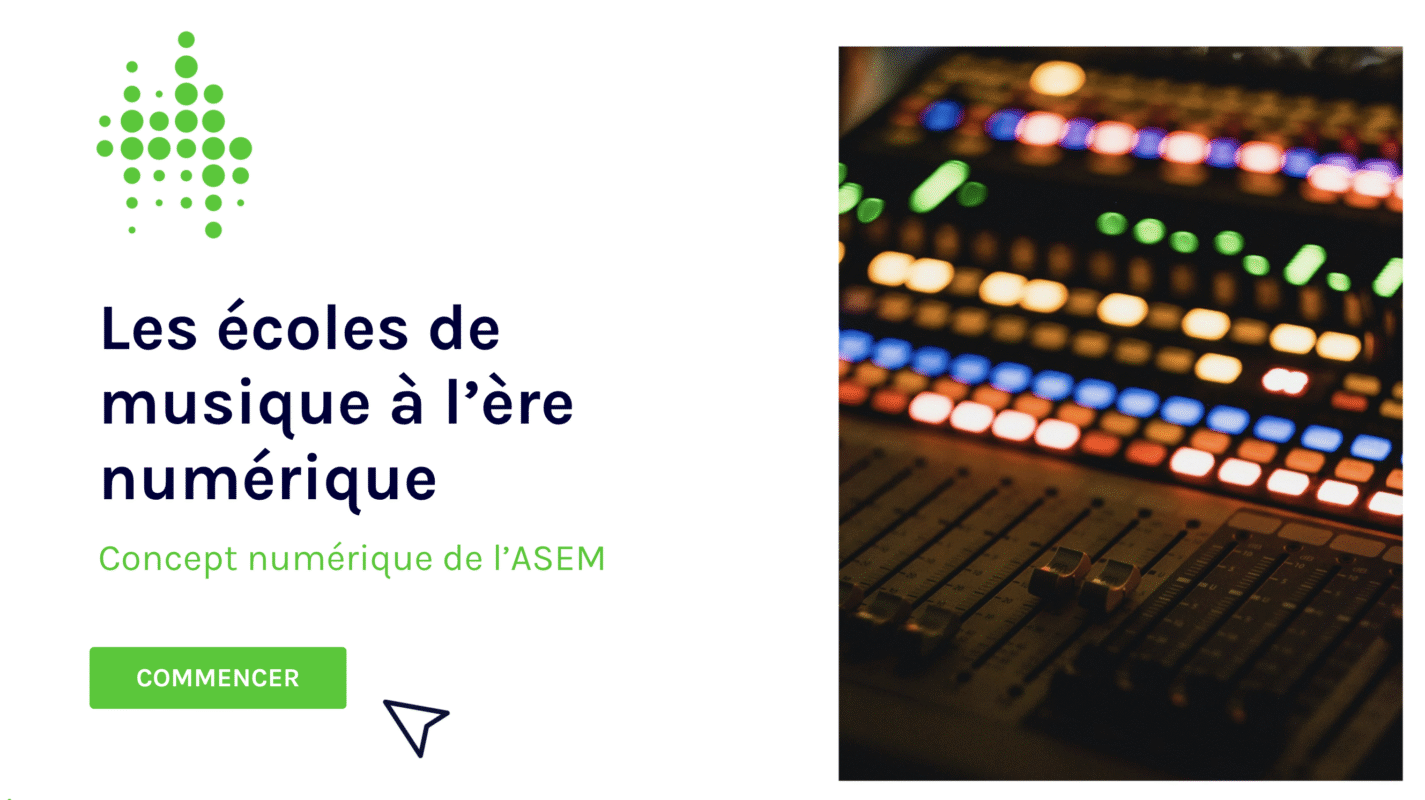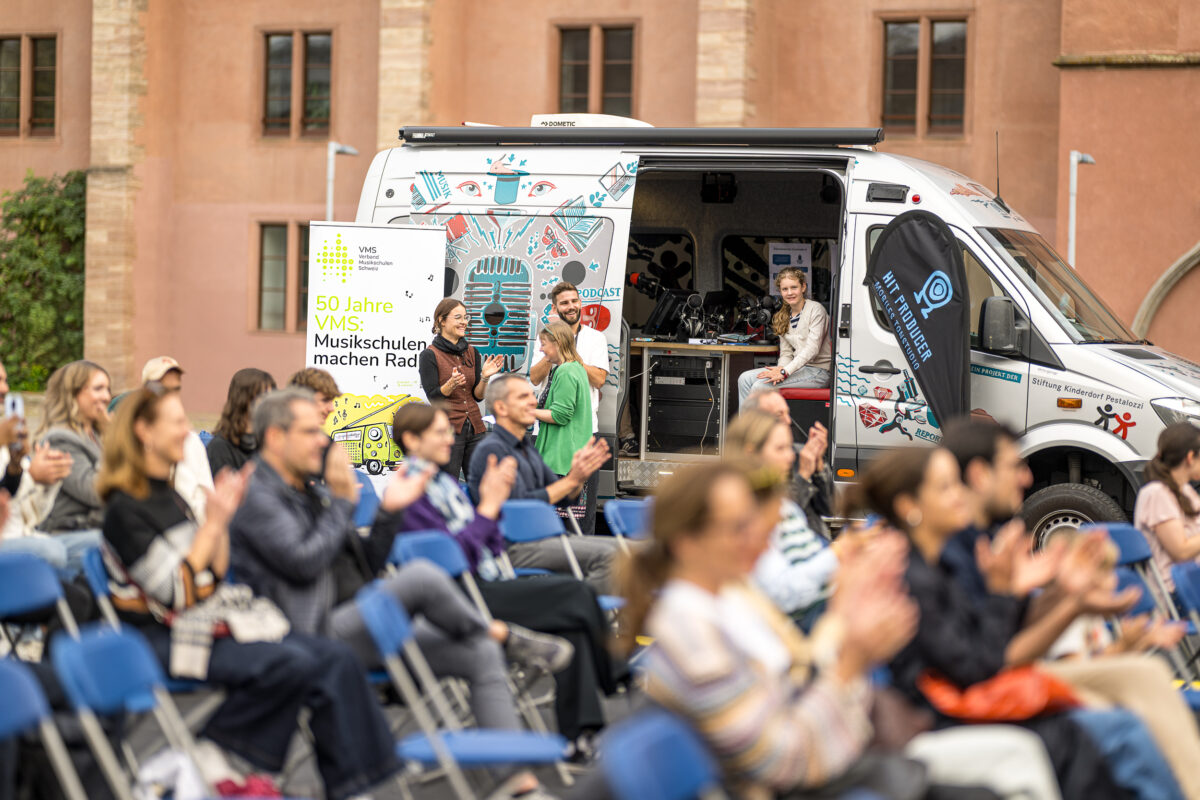Rethinking music education
Swiss music schools are becoming increasingly innovative. They seek to collaborate with other institutions, and develop forms of teaching that complement individual instrumental lessons. Such is the case of the music schools in Münchenstein (BL) and Alpnach (OW).
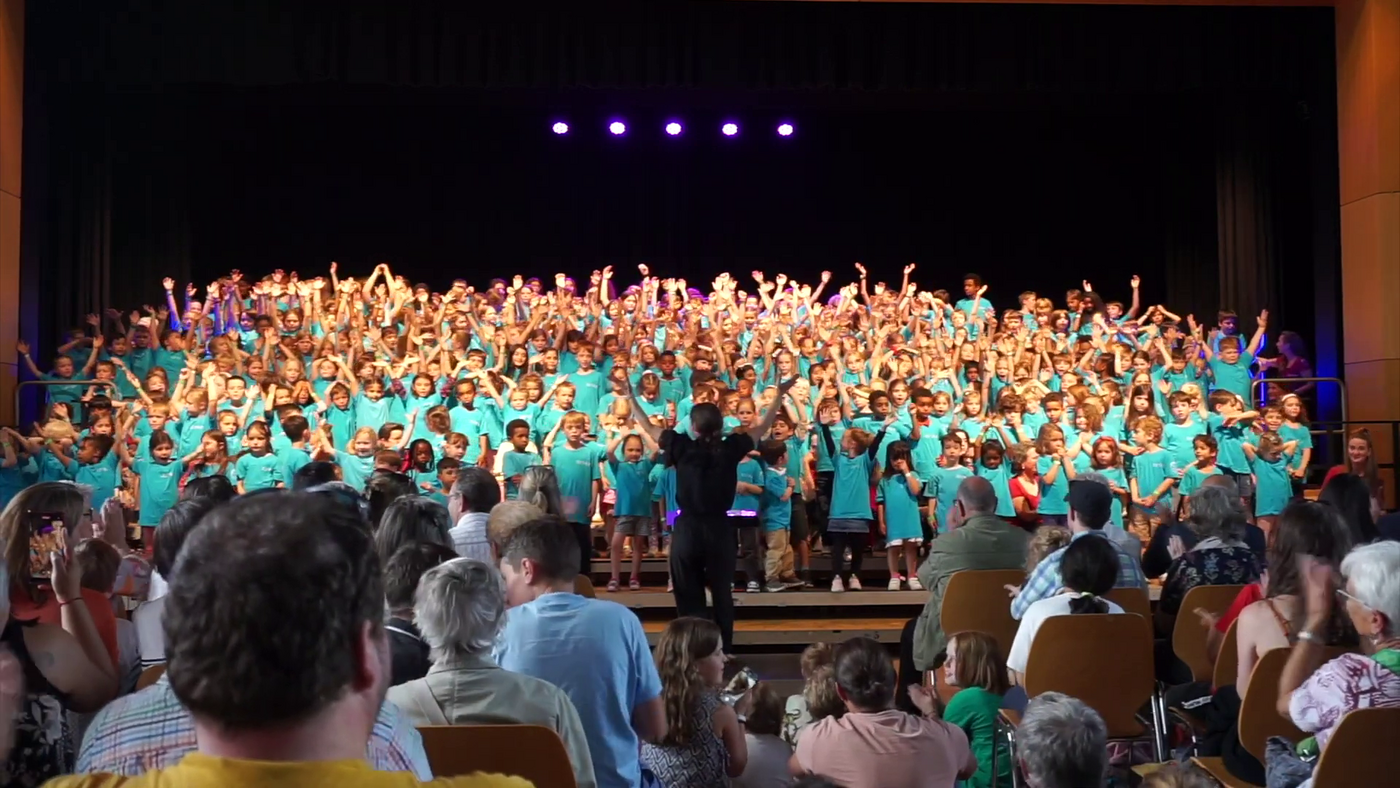
"We'd like children to spend more than just thirty minutes a week at music school," explains Stefanie Dillier, director of the Alpnach music school in the canton of Obwalden. "The music school should be a low-threshold center for musical experiences of all kinds". The three new teaching concepts brought together under the title "Musikschule+", launched in the 2024/2025 school year after a pilot phase lasting several years, show that her institution is on the right track.
Creative days to discover and learn together
Several times a year, members of the teaching staff at this small community music school offer a creative day - in fact, a half-day - which replaces the week's individual lessons and enables students to share a common experience. This might be a visit to Switzerland's largest organ at Engelberg Abbey, a day in the recording studio, or the creation of a "monster drum" consisting of all the music school's percussion instruments. "The teachers are very creative, and the feedback from the students is excellent," says Stefanie Dillier. Parents, too, give the new formula top marks.
Workshops for students and outsiders
While the creative days are aimed at students enrolled at the music school, new workshops, also offered as part of the innovative "Musikschule+" approach, are also open to other interested children and adults. These include a pop choir, a pan flute ensemble and various other musical groups. For younger children, the music school organizes the "Music Mind Games" workshop, which encourages playful access to music. Music theory courses are also planned.
Rehearsing at the music school
The third new formula consists of supervised rehearsal time. As the music school is located in the same building as the public school, music students can practice during the lunch break. At present, for reasons of space, this possibility is limited to Mondays and Tuesdays. Interested children can sign up at the beginning of the semester for 15 to 30 minutes of rehearsal time. Parents pay a token fee, and a teacher is always on hand to answer any questions. "We'd like to expand this service," says Stefanie Dillier. Current obstacles are the lack of premises and costs. She sees the formula as promising, since many pupils use the day care center and are therefore present at lunchtime anyway. It also relieves the burden on parents, while encouraging pupils' independence.
When birthdays turn into village festivals
"The overall Musikschule+ project is cost-neutral", says Stefanie Dillier. This undoubtedly makes it easier to accept - but Stefanie Dillier also points out that the music school is very popular in the village and well established among the population. "Last year, we celebrated our 50th anniversary, which was a real village festival. When the relationship with the school and the community is good, it opens up many possibilities."
Singing at school
The music school in Münchenstein, in the canton of Basel-Landschaft, also works closely with state schools. As part of its "Klingende Schulen" project, classes from the 1re to 6e year-olds take part in singing and music lessons in the classroom, free of charge. Elementary school teachers benefit from ongoing musical training, and work as a team with music teachers. The performances at the end of the school year are a highlight. "I have to admit I'm totally enthusiastic," says Salome Zumbrunn, co-director of the primary school in Münchenstein. "Generally speaking, singing and music are very important for a school."
Making the most of a cost-saving measure
The reasons behind the project, however, were not encouraging. As part of a package of cost-cutting measures, the municipality of Münchenstein was forced to abolish the third music and movement lesson for primary school pupils. As a compromise, funds were made available to the public school and the music school for cooperative projects. "We wanted to enable children to experience music in Münchenstein," explains Aloisia Dauer, director of the music school since 2023. As Basel-Landschaft has a long tradition of children's choirs, the project team from both institutions quickly decided in favor of joint singing classes integrated into the morning lessons, and percussion and Orff instrument lessons during the lunch break. In addition, primary school teachers were to be given the opportunity to attend further training courses in music.
Closing concert to a packed house
From the very first year of the project, feedback has been extremely positive. At the closing concert for all the singing classes in July 2024, over three hundred children were on stage. "We had a packed concert hall despite a Swiss soccer match," reports Aloisia Dauer. "The enjoyment of the music was clearly perceptible in the children as well as in the teachers, parents and the entire local council. It was truly an exceptional experience."
Positive evaluation of the pilot project
The evaluation of the pilot phase also produced gratifying results. Teachers reported an improvement in the classroom atmosphere thanks to singing - pupils sang together on excursions or in the playground to songs they had prepared. The ongoing training courses on voice placement, song repertoire and, since August 2025, song accompaniment on guitar were particularly appreciated."
Building a network
"As music schools, we need to think more in terms of a network, and not just work individually," says Aloisia Dauer. While one-to-one teaching is still very important to her, she believes that collaboration with schools and other institutions is also necessary. "We need to ensure that as many children as possible can come into contact with music. Music builds community - it brings people and generations together."
Award-winning
Both music schools received an award for their innovative projects at the ASEM best practice competition 2024/2025. The Münchenstein music school won the 2e jury prize, and Alpnach won the audience prize.
